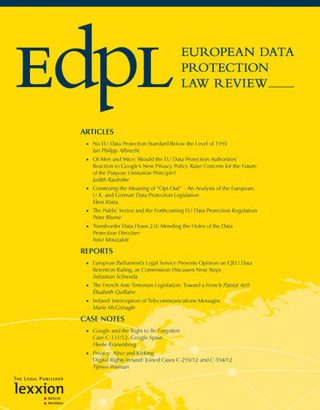Abstract: In the data economy, many organisations, particularly SMEs may not be in a position to generate large amounts of data themselves, but may benefit from reusing data previously collected by others. Organisations that collect large amounts of data themselves may also benefit from reusing such data for other purposes than originally envisioned. However, under the current EU personal data protection legal framework, constituted by the General Data Protection Regulation, there are clear limits and restrictions to the reuse of personal data. Data can only be reused for purposes that are compatible with the original purposes for which the data were collected and processed. This is at odds with the reality of the data economy, in which there is a considerable need for data reuse. To address this issue, in this article we present the concept of a Data Reuse Impact Assessment (DRIA), which can be considered as an extension to existing Privacy and Data Protection Impact Assessments (PIAs and DPIAs). By adding new elements to these existing tools that specifically focus on the reuse of data and aspects regarding data ethics, a DRIA may typically be helpful to strike a better balance between the protection of personal data that is being reused and the need for data reuse in the data economy. Using a DRIA may contribute to increased trust among data subjects that their personal data is adequately protected. Data subjects, in turn, may then be willing to share more data, which on the long term may also be beneficial for the data economy.
Custers, Bart; Vrabec, Helena U.; Friedewald, Michael: Assessing the Legal and Ethical Impact of Data Reuse: Developing a tool for Data Reuse Impact Assessments (DRIA). In: European Data Protection Law Review (EDPL) 5, No. 3, October 2019, pp. 317 – 337.
DOI https://doi.org/10.21552/edpl/2019/3/7


